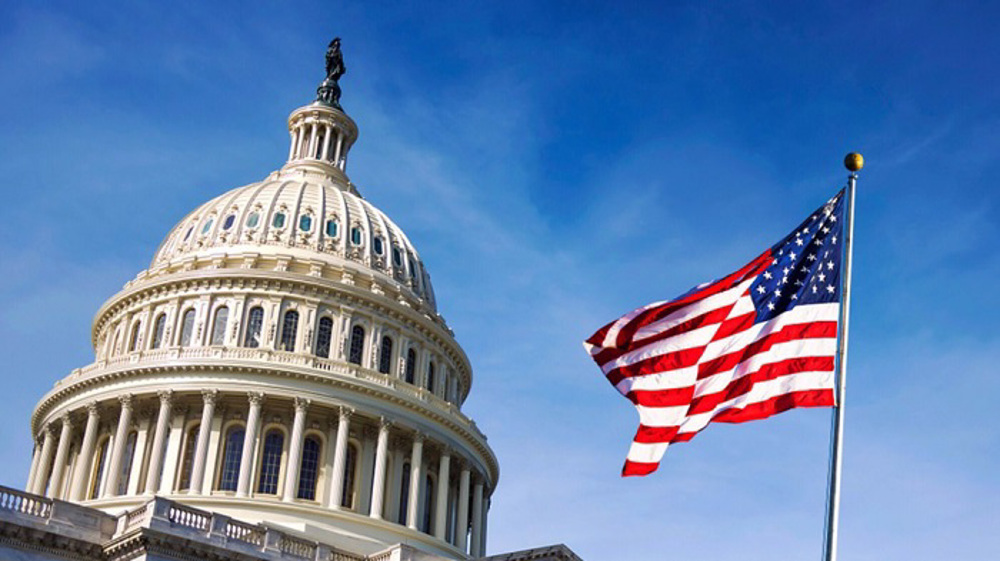Scuffles erupt in Japan parliament over security bills
Scuffles have broken out in Japan’s parliament as lawmakers remain in a deadlock over a set of proposed security bills that would allow Japanese soldiers to fight abroad for the first time in decades if ratified.
Members of Japan’s opposition and ruling coalition pushed and shoved each other in a rare show of physical anger over differences regarding the bills on Thursday.
This came after opposition lawmakers blocked the parliament’s doorways and gathered in the building’s hallways, delaying a vote in the legislature’s upper house – which would see the bills become law – on Wednesday night.

The vote has now been rescheduled for Thursday morning.
The intense disagreements and the delay of the vote on Thursday came despite earlier assumptions that the bills would comfortably survive the upper house vote as Japanese Prime Minister Shinzo Abe’s ruling coalition held the majority of the seats there.
Police sources said some 13,000 people also gathered outside the building on Wednesday, demanding that the bills be scrapped.

At least 13 protesters were detained during the rally.
Pros & cons
The bills, which were ratified by the lower house of the Japanese parliament on July 16, aim to broaden the mandate of Japan’s military forces, allowing them to participate in foreign operations in order to protect allies such as the United States even if there was no direct threat to Tokyo.
Abe claims that the bills are necessary to deal with a changing security environment and threats posed by regional countries that are expanding their military and nuclear capabilities.
However, opponents argue that the bills would damage 70 years of pacifism as the revisions will alter the 1945 constitution, which bars Tokyo from combat except in self-defense.
Iran, Pakistan to bring peace, stability to region through cooperation: Raeisi
'Regrettable': Iran slams EU sanctions, says bloc satisfying criminal Israeli regime
Hamas to survive as Israel fails to destroy command centers, tunnels: US media
April 22: ‘Axis of Resistance’ operations against Israeli occupation
N Korea holds first ever 'nuclear trigger' drills, simulates counterattack
VIDEO | Press TV's news headlines
VIDEO | The Rise of Palestine Action
Pro-Palestinian protests gain momentum across US universities









 This makes it easy to access the Press TV website
This makes it easy to access the Press TV website